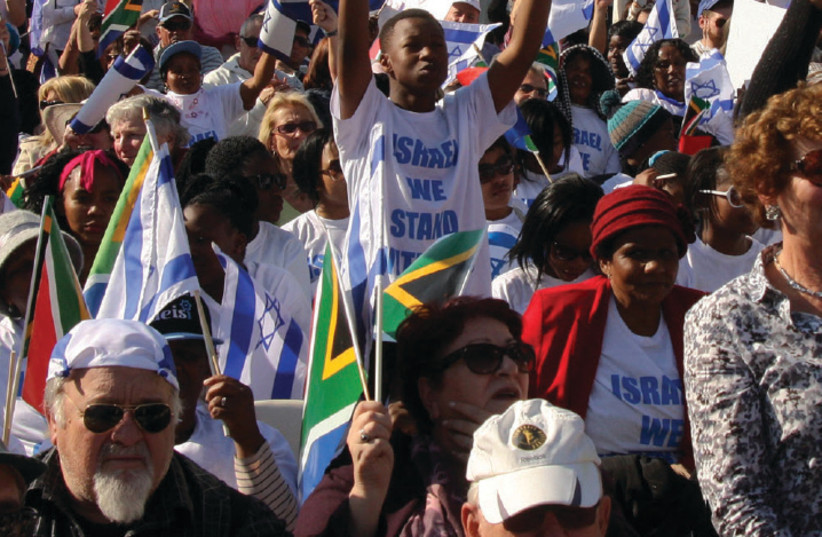While there are many differences between the political upheaval in South Africa in the 90s and what’s happening in Israel today, South African Jews will have an uncomfortable feeling of deja vu and draw many familiar and painful parallels.
After the Soweto riots in 1976, South African Jewry feared a quick deterioration into violence and started making plans to leave the country. Anyone who could issue a foreign passport did so and money was smuggled abroad to avoid stringent foreign currency controls. The nightmare scenario did not materialize, however, and in the early 90s, the nation transitioned peacefully to democracy.
South Africa, once an economic model state for Africa, has under ANC rule, quickly deteriorated into a failed state due to institutionalized corruption and lack of a strong judiciary and constitutional court. Checks and balances have all but disappeared, with the majority government encouraging cronyism and nepotism, along with anti-free market policies.
Infrastructures, once a source of pride, have crumbled, with electricity and water shortages becoming ever more frequent, and general deterioration and disrepair the new normal. As the situation deteriorates, personal safety has become the number one concern with crime reaching unprecedented levels.
Could this be the fate of secular Israelis under the current government? As I mentioned, Israel is a very different country, but many South African Jews will be painfully familiar with the potential implications of the judicial “reform” zealously pursued by the current ultra-right-wing government.

Judicial reforms will tear the country apart
My fear is that the result of the current reform, which weakens the judiciary and centralizes power in the hands of the executive, will over time mirror the steady deterioration seen in South Africa. As democracy is rolled back, the economy will deterministically deteriorate, the cost of money will increase, FDI (foreign direct investment) will inevitably shrink, and spreading corruption will further erode economic prosperity.
Due to the lack of judicial constraints on the executive, corruption by elected officials will be rife and further deteriorate an already weak civil service, a brain drain of professionals will ensue and civil society will be weakened. Over time, this will negatively impact the government’s ability to provide citizens with basic services and more importantly, irreparably damage education, academia, and the national healthcare systems.
Where South Africa suffers from unemployment and illegal immigration, Israel is burdened by a large ultra-Orthodox community that does not contribute its share and is funded through transfer payments. The causes are different, the results the same.
South African Jews know this process only too well. It has a huge social impact on families, with the young leaving for greener pastures abroad and the elderly and sick left behind to fend for themselves, battling loneliness and living from one family visit to the next.
The shrinking economy, along with the weakening of the local currency means less pensions, less healthcare, and less money for travel and leisure. This also cuts the transfer of inherited income from one generation to the next. This could be the fate of Israel’s secular and liberal population.
Israel could be South Africa on steroids, accelerating the pace of deterioration and decay. The ever-increasing pace of change, coupled with external threats facing Israel, make this cocktail even more toxic. Our enemies closely follow political, economic, and social trends in Israel and could interpret the current crisis as an opportunity to challenge us militarily. With a badly weakened IDF and civilian resilience at an all-time low, this could be disastrous.
As an Israeli patriot who made aliyah from South Africa in 1978, leaving a country in turmoil with a bleak future, and having spent 36 years serving my adopted Jewish homeland in the military and security organizations, it is inconceivable that I will be forced to emigrate again or encourage my children to do so.
Israel is at a crossroads and must decide between continuing to be a vibrant democracy and economic success, or a religious autocracy. I will do all in my power to ensure the former.
The writer is a former commander of an operational division in the Mossad. His identity is not disclosed for security reasons.
